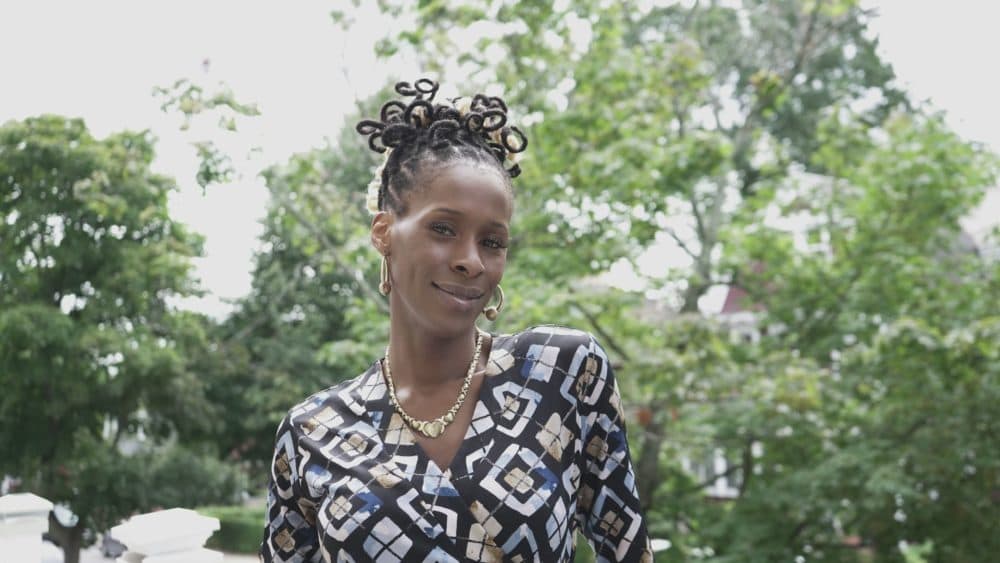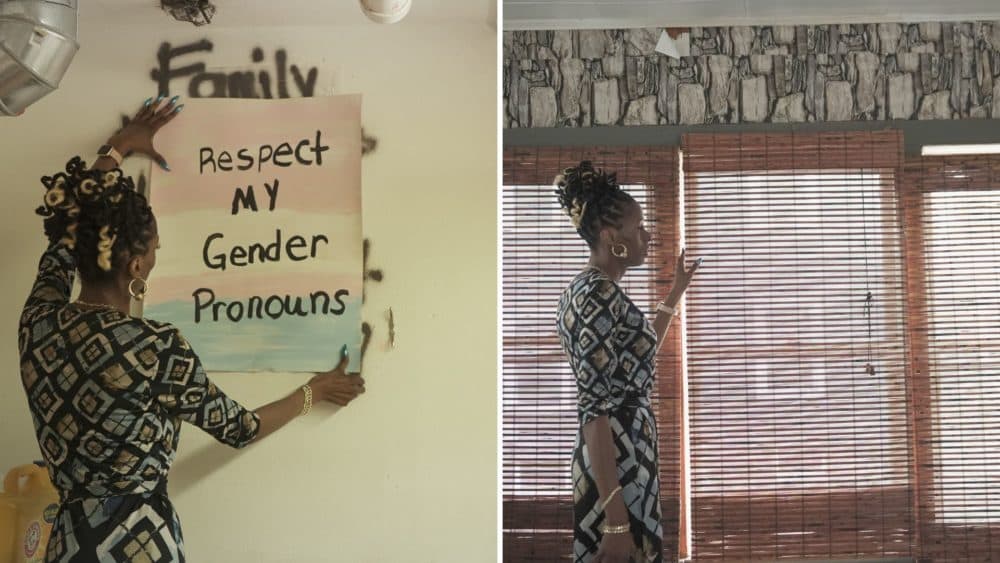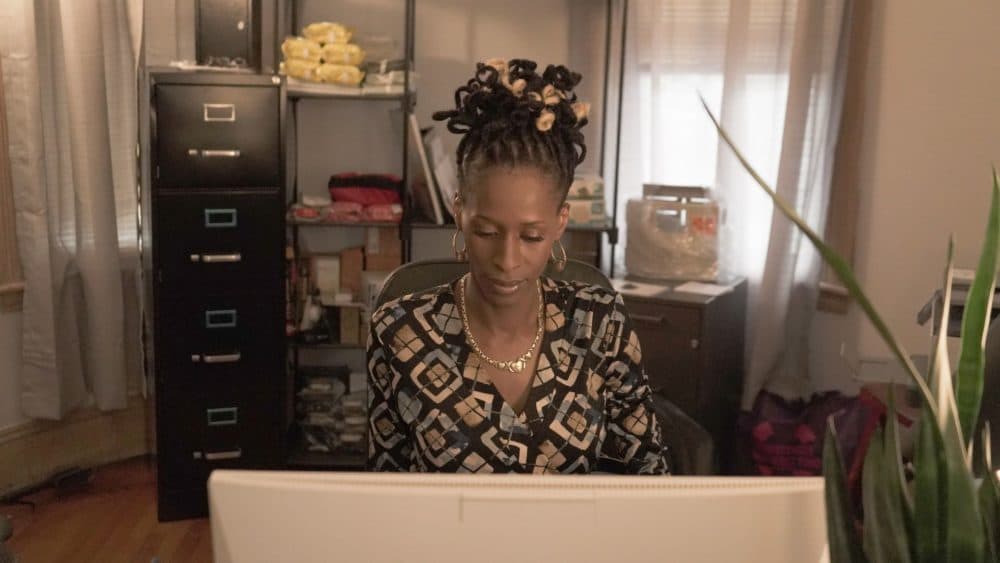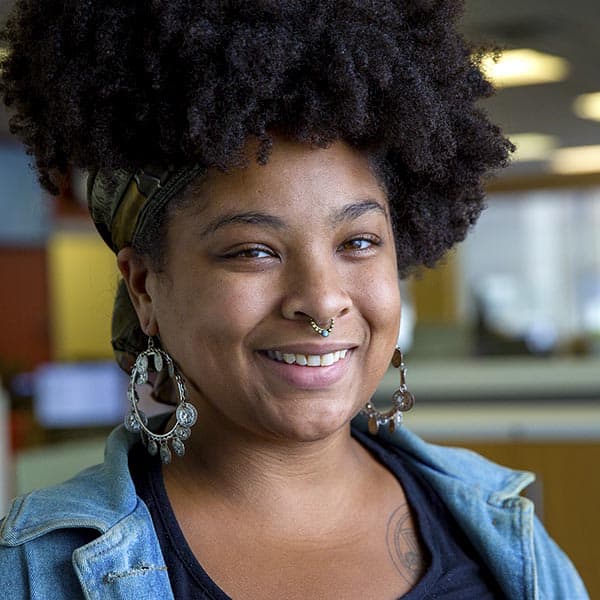Advertisement
Transgender Emergency Fund launches first-of-its-kind housing initiative in Boston
Finding housing in Boston is notoriously difficult and expensive. With Boston's housing shortage crisis, rising median rents and increasing rates of gentrification, securing a place to live is a very precarious dance. But that dance to find housing is even more tricky for members of the LGBTQIA community.
Chastity Bowick, executive director of the Transgender Emergency Fund, is intimately familiar with the housing struggle because she's experienced it herself. "It's extremely hard to find housing as a Black trans woman," she says. "When I was looking for apartments, no one would rent to me. I had the income, the down payment... I had the references, and nobody could give me a reason why they wouldn't accept me as a tenant."

Housing discrimination based on gender or sexuality is illegal under Massachusetts state law but that doesn't prevent it from happening. A 2015 survey from the National Center for Transgender Equality found that 21% of respondents experienced housing discrimination in Massachusetts and that 8% experienced homelessness because of their transgender identity. For those who seek temporary housing in a shelter, national statistics show that 30% of trans people reported being denied due to "being transgender or due to their gender expression."
Bowick herself was homeless in 2012. She contacted the Transgender Emergency Fund for help and they set her up with food and a hotel room. That assistance changed her life. Ten years later, she's leading the organization as it embarks on a housing initiative that is the first of its kind in the city.
TEF spent months searching for a large home in the city, where it could provide housing and other resources to trans and nonbinary individuals who are experiencing housing insecurity. In May, a suitable property was found and the organization officially began its housing program. It can now offer rooms to eight trans and nonbinary individuals who need housing. At the time of the reporting for this piece, four people had moved into the property. (To protect the safety of these individuals, we will not be disclosing the address.)
One of them is Mickie Jones, a 32-year-old medical assistant who moved to Boston from Alabama in 2016 to pursue cosmetology. In May 2022, she became homeless after being unceremoniously kicked out by a roommate. "I almost went off the deep end," Jones recalls of her experience over the summer. She had $3,000 saved from working but those funds quickly dried up after paying for Airbnbs, food and transportation. "I was doing everything that I was supposed to do. I was being responsible. And, you know, everything just backfired on me. And I could not understand why."
Advertisement
With her next paycheck over a week away, her bank account near empty and her last night at her Airbnb quickly approaching, Jones decided to reach out to Bowick and the Transgender Emergency Fund for help. It wasn't long before she had a room at the house and the resources to start putting her life back together. "This is more than just a transitioning home," Jones says. "I was able to get my license back. I'm enrolled back in school for September and I got a better job that's coming my way."

This is because the organization's housing initiative offers much more than just a room. "We want to provide wrap-around services," Bowick says. "It's about creating a pathway to sustainability." It's a continuation of much of the work the TEF was already doing for trans and nonbinary people who applied for aid. It includes providing monetary support for rent, utilities, transportation and medical expenses, securing housing or temporary shelter, and helping with job-building skills and financial literacy. For those living at the house, things like laundry, bedding and personal hygiene supplies are provided by TEF.
"Because many trans and nonbinary people are kicked out of our houses or forced to leave home earlier, we missed some of those life lessons," Bowick says. "How do I balance a checkbook? How much should I have in my savings? These are things we're all sort of learning together as the program continues." Individuals who stay at the house have their room for up to a year, during which time they're expected to search for employment and contribute to their savings account. "The goal is for them to have saved up enough for first [month's rent], last month's rent, security deposit and some funds to pay for furniture by the time they leave."
While Bowick and TEF are thrilled that the housing program is kicking off, they point out that the road to securing a site and support for the initiative wasn't and isn't easy. "Even when we were searching for a house and explaining to potential landlords what the program was about, we'd get responses like, 'Is this a program for predators?' or other transphobic and homophobic comments."

"Right now, we have 24 applications for the house and only four beds," Bowick points out. "We have 84 applications for housing assistance. You can't tell me that housing isn't a real need for the LGBTQ+ community here. And it's something that Boston needs to pay attention to."
TEF signed a two-year lease and is trying to secure funds to purchase the home outright. The goal is to continue to provide stable housing for trans and nonbinary people who need it. Bowick says the city of Boston and local foundations need to step up.
"We have all of this Pride programming here in the city... Boston now has an office for LGBTQ+ advancement and has just now secured some housing for LGBTQ+ seniors. Yet, there's still next to no accessible housing for trans and nonbinary individuals experiencing housing insecurity. We're going to be putting pressure on them... to really put their money where their mouth is."
